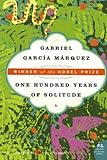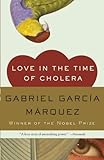Gabriel Garcia Marquez VIDEO Gabriel José de la Concordia GarcÃÂa Márquez (Spanish pronunciation:à[áaÃËòþjel áaþÃËsia ÃËmaþkes]; born March 6, 1927) is a Colombian novelist, short-story writer, screenwriter and journalist, known affectionately as Gabo throughout Latin America. Considered one of the most significant authors of the 20th century, he was awarded the 1972 Neustadt International Prize for Literature and the 1982 Nobel Prize in Literature, and is the earliest remaining living recipient.1 He pursued a self-directed education that resulted in his leaving law school for a career in journalism. From early on, he showed no inhibitions in his criticism of Colombian and foreign politics. In 1958, he married Mercedes Barcha; they have two sons, Rodrigo and Gonzalo.
He started as a journalist, and has written many acclaimed non-fiction works and short stories, but is best known for his novels, such as One Hundred Years of Solitude (1967) and Love in the Time of Cholera (1985). His works have achieved significant critical acclaim and widespread commercial success, most notably for popularizing a literary style labeled as magic realism, which uses magical elements and events in otherwise ordinary and realistic situations. Some of his works are set in a fictional village called Macondo (the town mainly inspired by his birthplace Aracataca), and most of them express the theme of solitude. Continue Reading »
The above description is from the Wikipedia article on
Gabriel Garcia Marquez , licensed under
CC-BY-SA 3.0 . A full list of contributors can be found
here .




